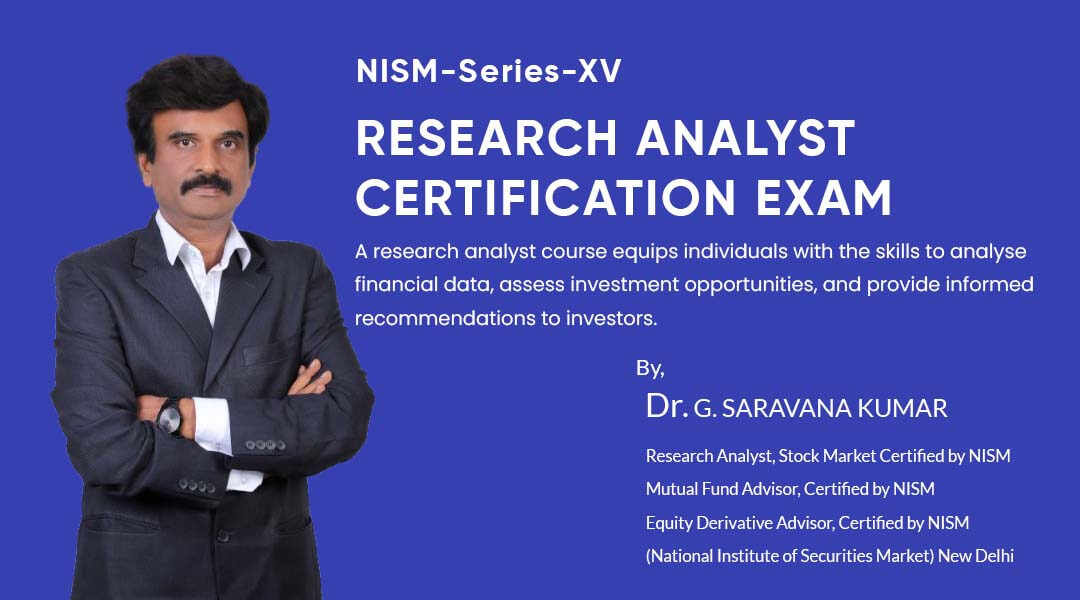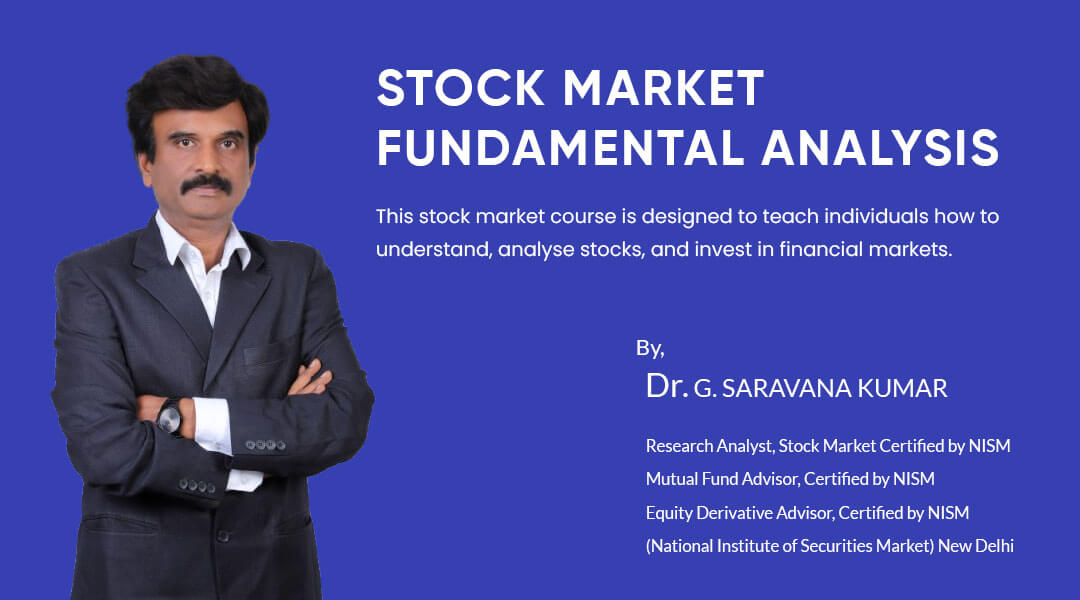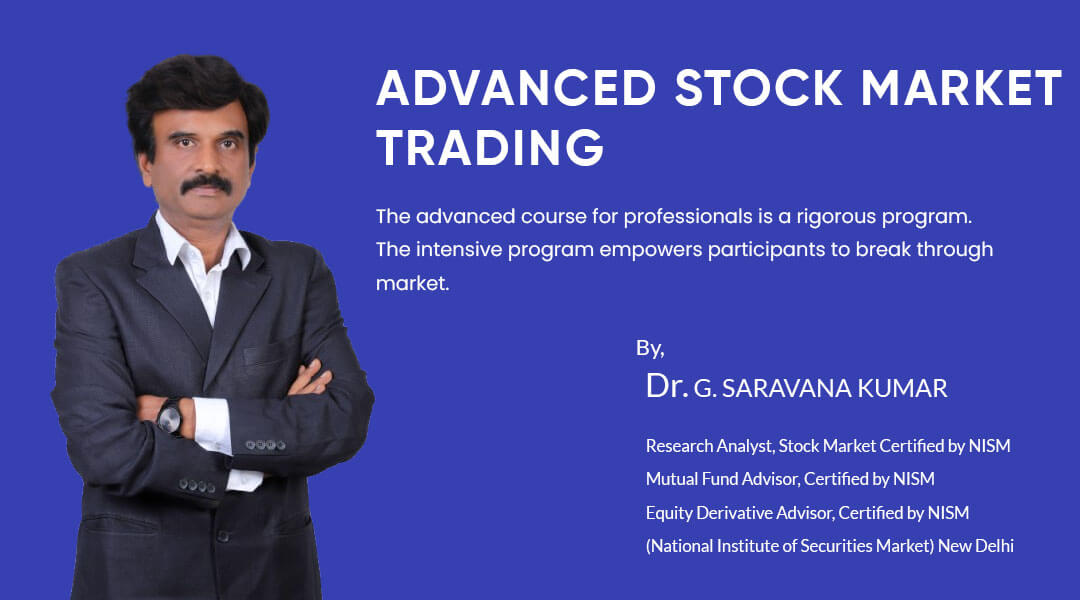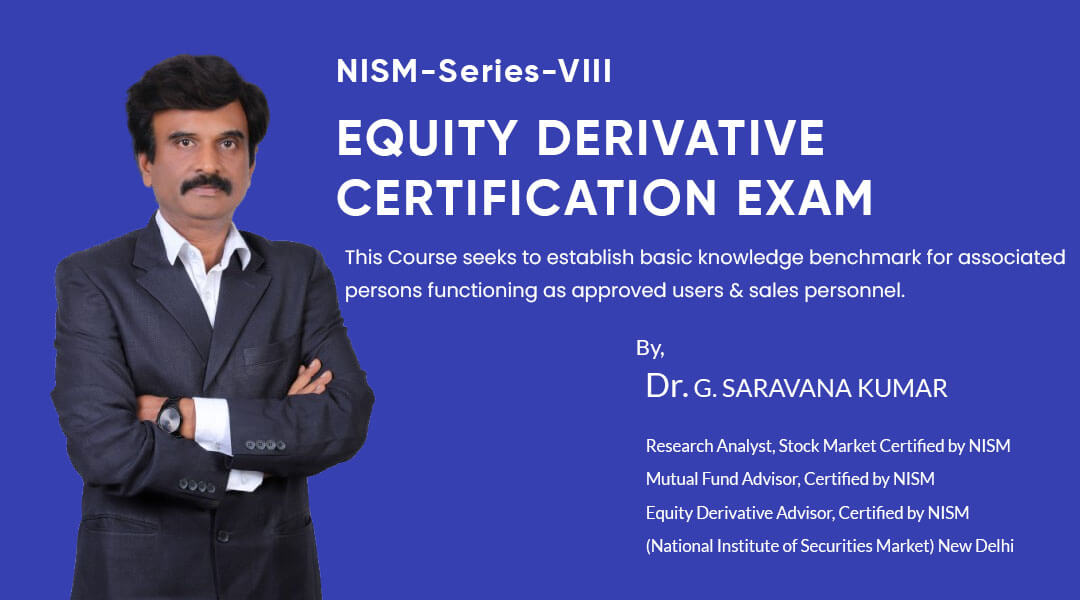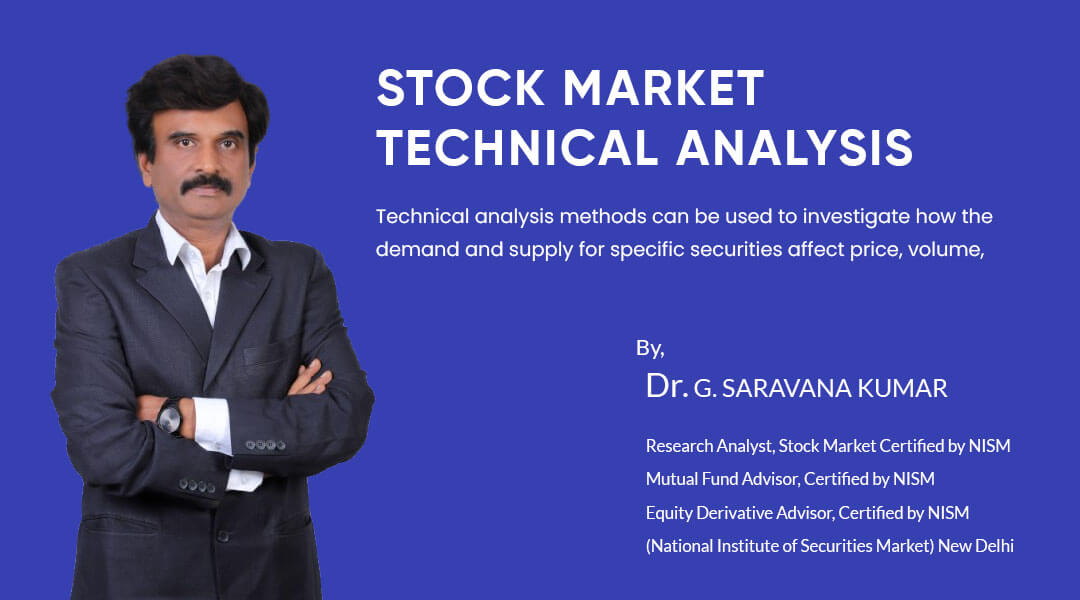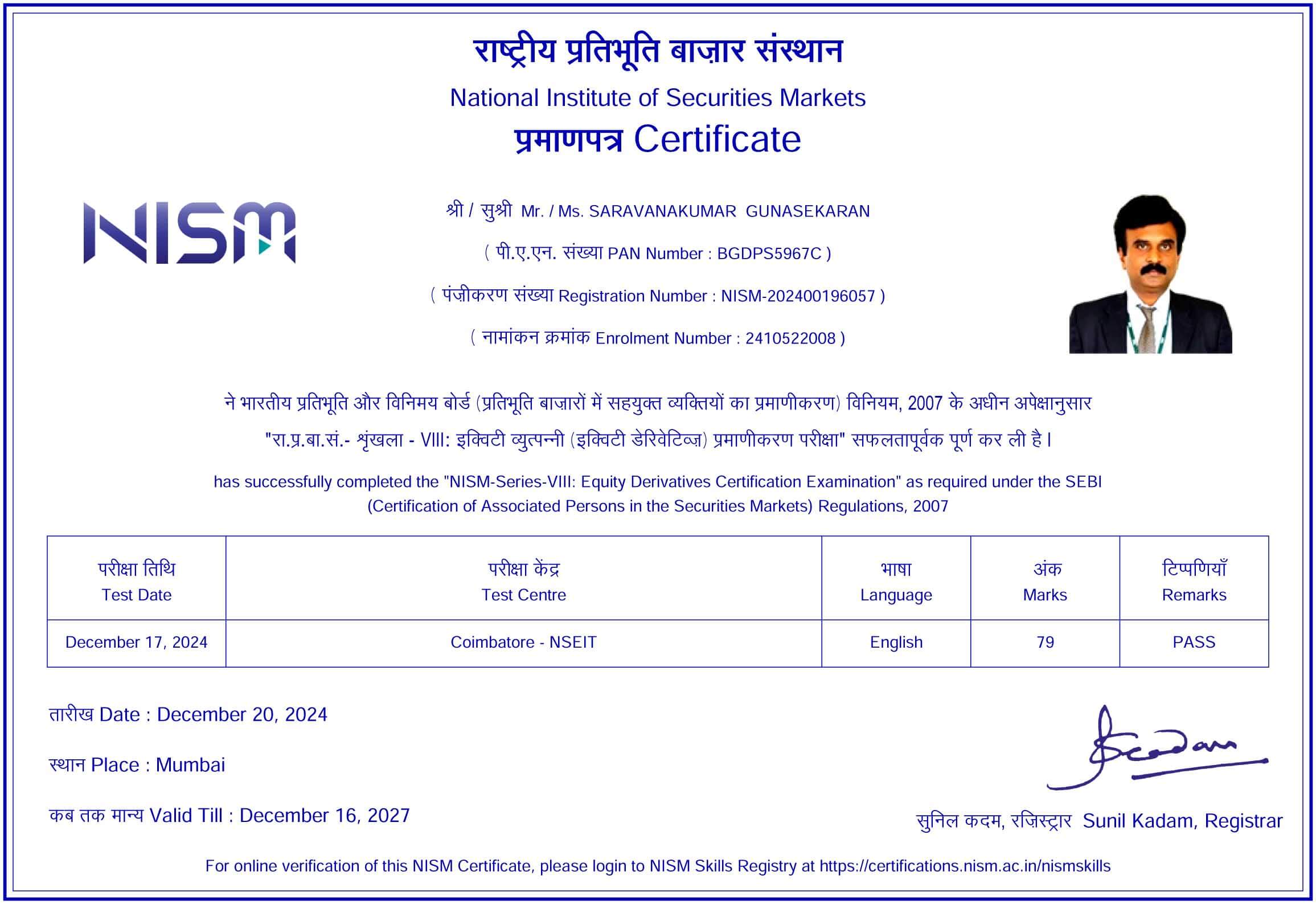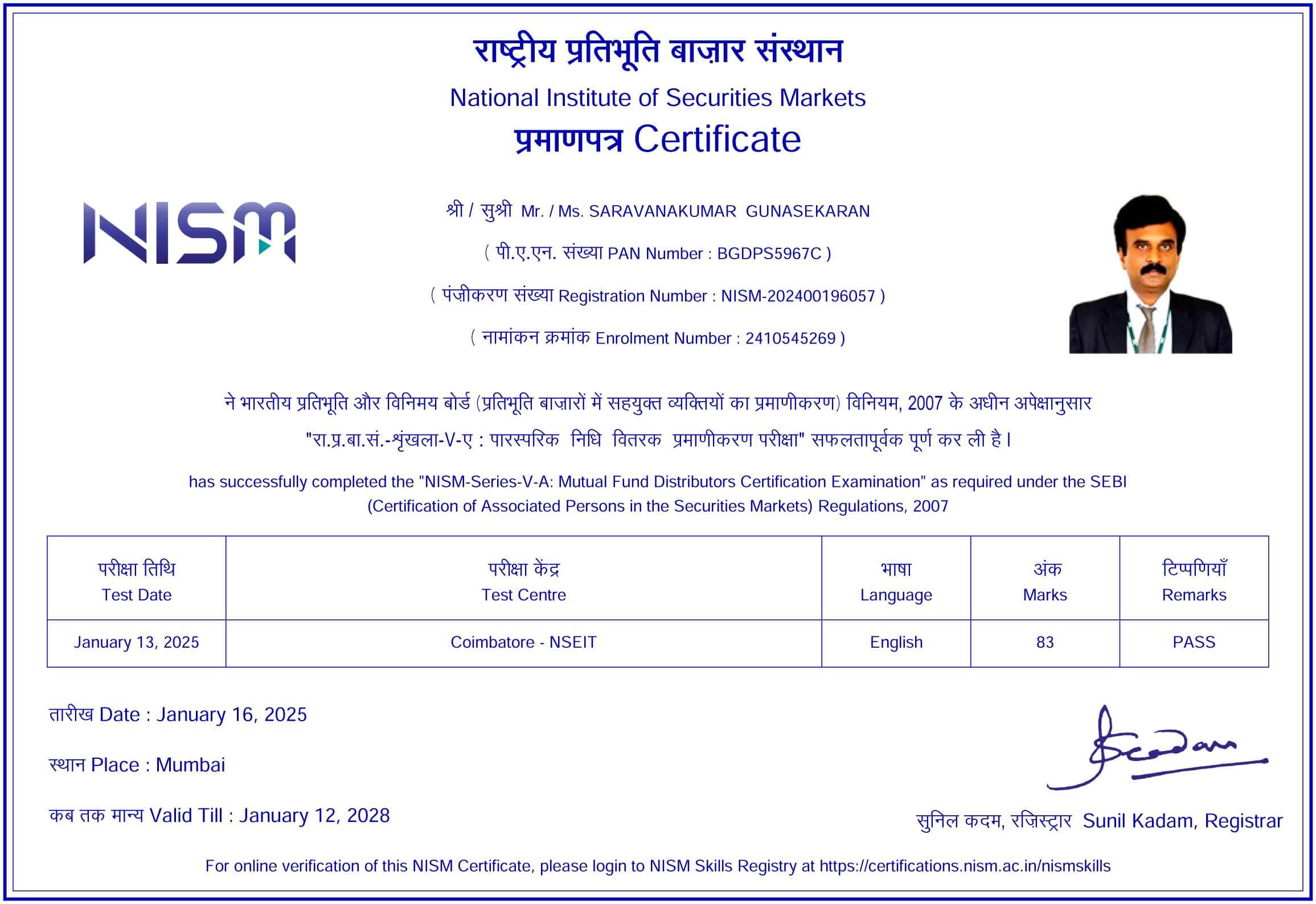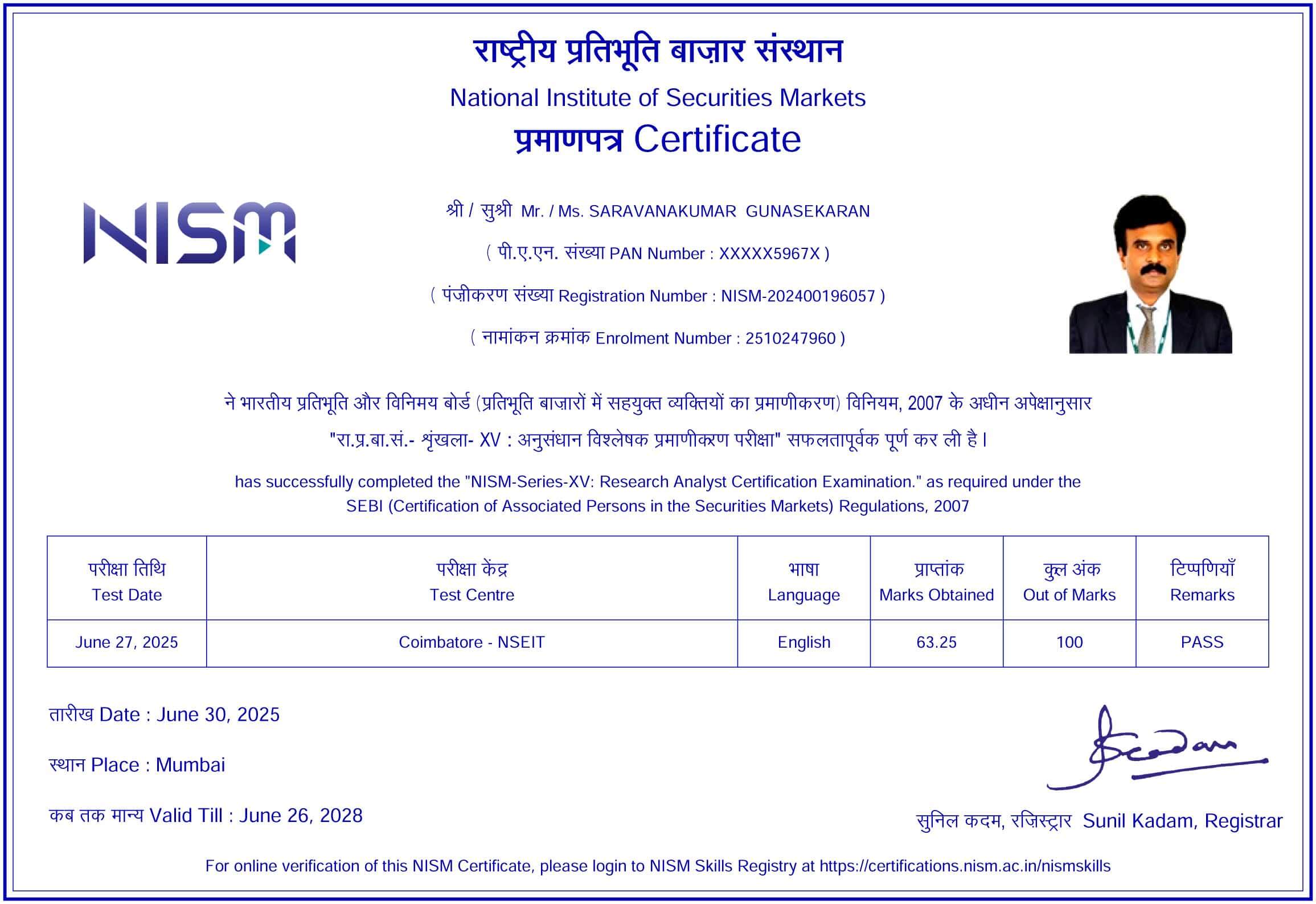NISM-Series V-A: Mutual Fund Distributor Certification Exam
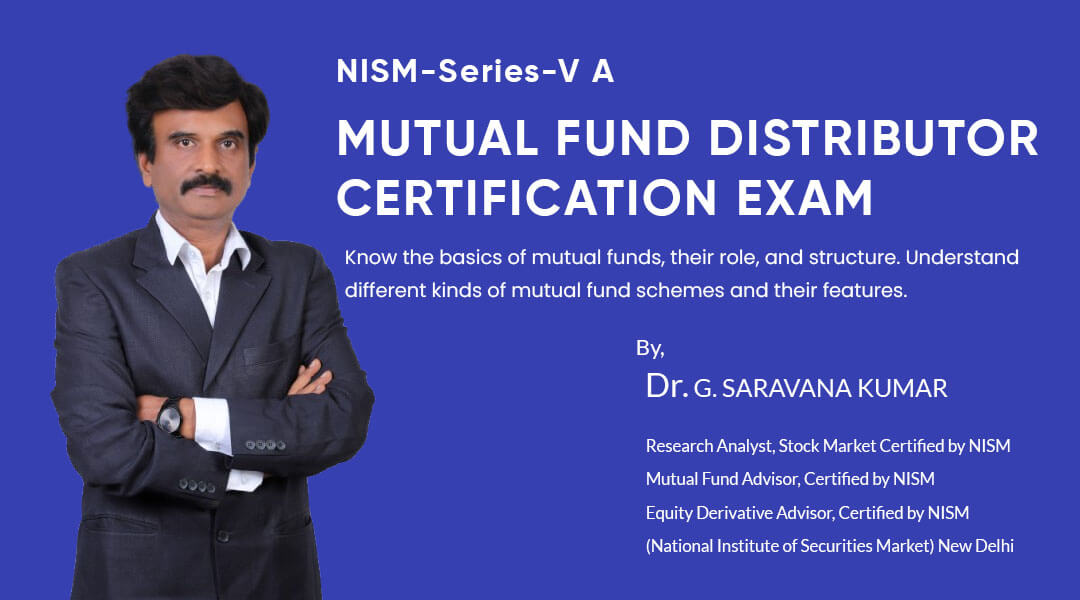
A mutual fund is an investment vehicle where many investors pool their money to earn returns on their capital over a period. This corpus of funds is managed by an investment professional known as a fund manager or portfolio manager.
It is his/her job to invest the corpus in different securities such as bonds, stocks, gold, and other assets and seek to provide potential returns. The gains (or losses) on the investment are shared collectively by the investors in proportion to their contribution to the fund.
To become a Mutual fund distributor, this course will provide you with a clear insight into the basics of mutual funds, their schemes, knowledge on suitable products and services that can be recommended to investors, accounting and valuation Techniques, and as a distributor, you will learn how to develop a long-term relationship with your clients.
Investors and their financial goals, saving or investment, different asset classes.
Investment risks, Risk measures, and management strategies.
Behavioural biases in investment decision making, Understanding asset allocation.
Concept and Role of Mutual Funds, Classification of Mutual Funds.
Systematic approach to mutual fund, Growth of the mutual fund industry in India.
Investment Objectives of Mutual fund, Classification of mutual funds.
Legal Structure of Mutual Funds, Key Constituents of a Mutual Fund.
Organization Structure of Asset Management Company.
Role and support functions of service providers of mutual funds.
Role of regulators in India, Role of SEBI in regulating mutual funds.
Due Diligence Process by AMCs for Distributors of Mutual Funds.
Investor Grievance and Redress Standards, AMFI Code of Ethics.
Mandatory Documents, Scheme Information Document.
Statement of Additional Information, Key Information Memorandum.
Non-Mandatory Documents.
Role and importance of mutual fund distributors.
Pre-requisites to become a mutual fund distributor: Revenue.
Commission disclosure is mandated by SEBI, and the Due Diligence Process by AMC.
Fair Valuation Principles and relevance for investors.
Dividends & Distributable Reserves, Concept of Entry and Exit Load.
Total expense ratio and pricing of units for the Segregated Portfolio.
Applicability of taxes in respect of mutual fund, Capital Gains, and Dividend Income.
Setting off Gains and Losses under the Income Tax Act, Securities Transaction Tax.
New Fund Offer Process, KYC requirements for mutual fund investors.
General and Specific risk factors, Factors affecting different schemes.
Drivers of returns and risk in a scheme, Measures of returns.
SEBI norms regarding mutual funds in India, Risks in fund investing.
Concept of Benchmarks and Performance in the case of mutual funds.
Benchmarks for Equity Schemes, Benchmark for Debt Schemes, Other Schemes.
Quantitative measures of fund manager performance, Sources to track performance.


